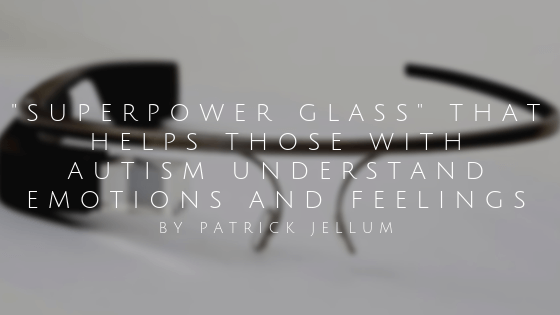The autism spectrum is broad and fraught with various challenges, but one core element tends to pop up in most affected individuals: The inability to read social cues based on physical expression. While this is more pronounced in some than others, it can have an adverse effect on an autistic child’s overall development. That’s where the new “Superpower Glass” comes in.
The device combines the augmented reality of Google Glass with artificial intelligence that helps the wearer to decipher the facial expressions of anyone in his or her field of vision. First, an outward-facing camera takes a snapshot of a face, then sends the image to a recognition app on a wifi frequency. Seconds later, a corresponding emoji will pop up on the wearer’s screen, along with the helpful alert “You found a face.” For now, the emojis represent seven basic emotions: happy, sad, surprised, fearful, angry, disgusted, and contemptuous. There’s also a “neutral” face, which should be useful in helping the child to determine the difference between a noncommittal expression and the more intense ones.
According to Dennis Wall, a professor of pediatrics at the Stanford University School of Medicine, this technology merely augments a technique that’s already used in behavioral therapy. The glasses take the conceit a step further in that they can be worn throughout normal interaction, and not just during sessions. In addition to the “free play” mode, which is recommended for everyday use, there are two other settings: “capture the smile,” in which a person presents the child with clues about what emotion they’re feeling and encourages them to act it out; and “guess my emotion,” which is essentially the reverse–a person acts out the emotion, while the child guesses.
Thus far, the tests have been encouraging, at least among families with autistic children between the ages of 3 to 17. In the study, 14 children used the Superpower Glass in a series of three 20-minute sessions over a period of ten weeks. According to the families, the majority of the children tested were making more eye contact at the conclusion of the experiment.
Moving forward, the team is hoping to broaden the field of available expressions, thereby making the app more useful to adults. If they can secure FDA approval for the device, it can be covered by insurance plans, which could make a significant difference in the lives of autistic individuals and their families.

